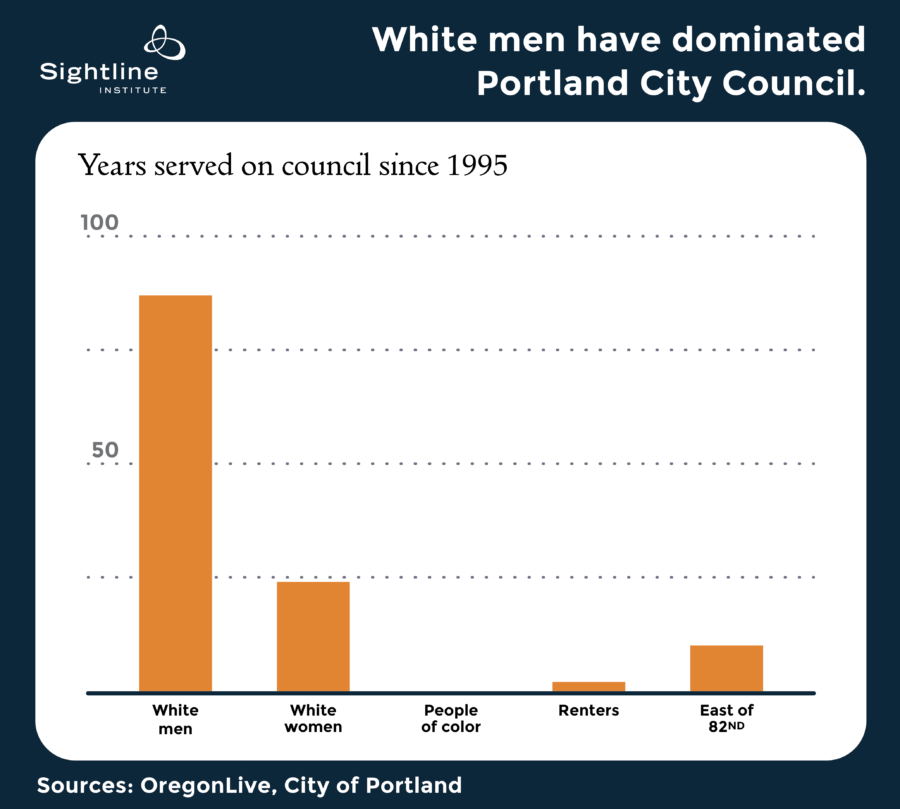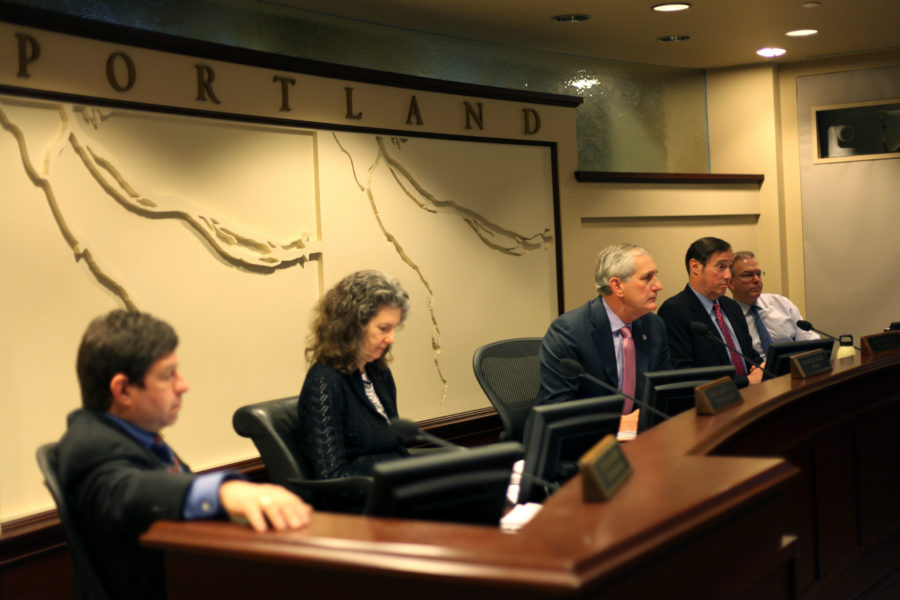Author’s note: This is the TL;DR version of a longer article about Portland’s unrepresentative city council.
Portland has a glaring problem—white men dominate, and have always dominated, the city council. The city is nearly one-third people of color, half women, more than one-third renters, and about one-quarter of residents live east of 82nd. But in the city’s history, only eight white women, two men of color, one lifelong renter, and one person living east of 82nd have ever served on city council.
Even in recent history, white men disproportionately dominate the council. If we add up each year that a person has served on Portland city council since 1995, there are 111 years. Of those:
- White men have served 87
- White women have served 24
- Men and women of color have served 0
- Renters (Chloe Eudaly and Nick Fish) have served 2
- Someone living east of 82nd (Randy Leonard) served 10

For more than 100 years, Portland has elected its councilors in the least representative way possible: at-large numbered seats and “vote for one” (plurality) ballots.
Portland could give more voters a voice in city government by using proportional representation: running candidates in multi-winner districts and letting voters rank candidates (ranked-choice voting) or distribute more than one vote amongst candidates (cumulative voting). Cities, counties, and school boards across the United States use this method to achieve fair representation for all voters, as well as a host of other benefits.
[list_signup_button button_text=”Like what you|apos;re reading? Get our latest democracy reform research here.” form_title=”Reclaiming Our Democracy” selected_lists='{“Reclaiming Our Democracy”:”Reclaiming Our Democracy”}’ align=”center”]


Comments are closed.